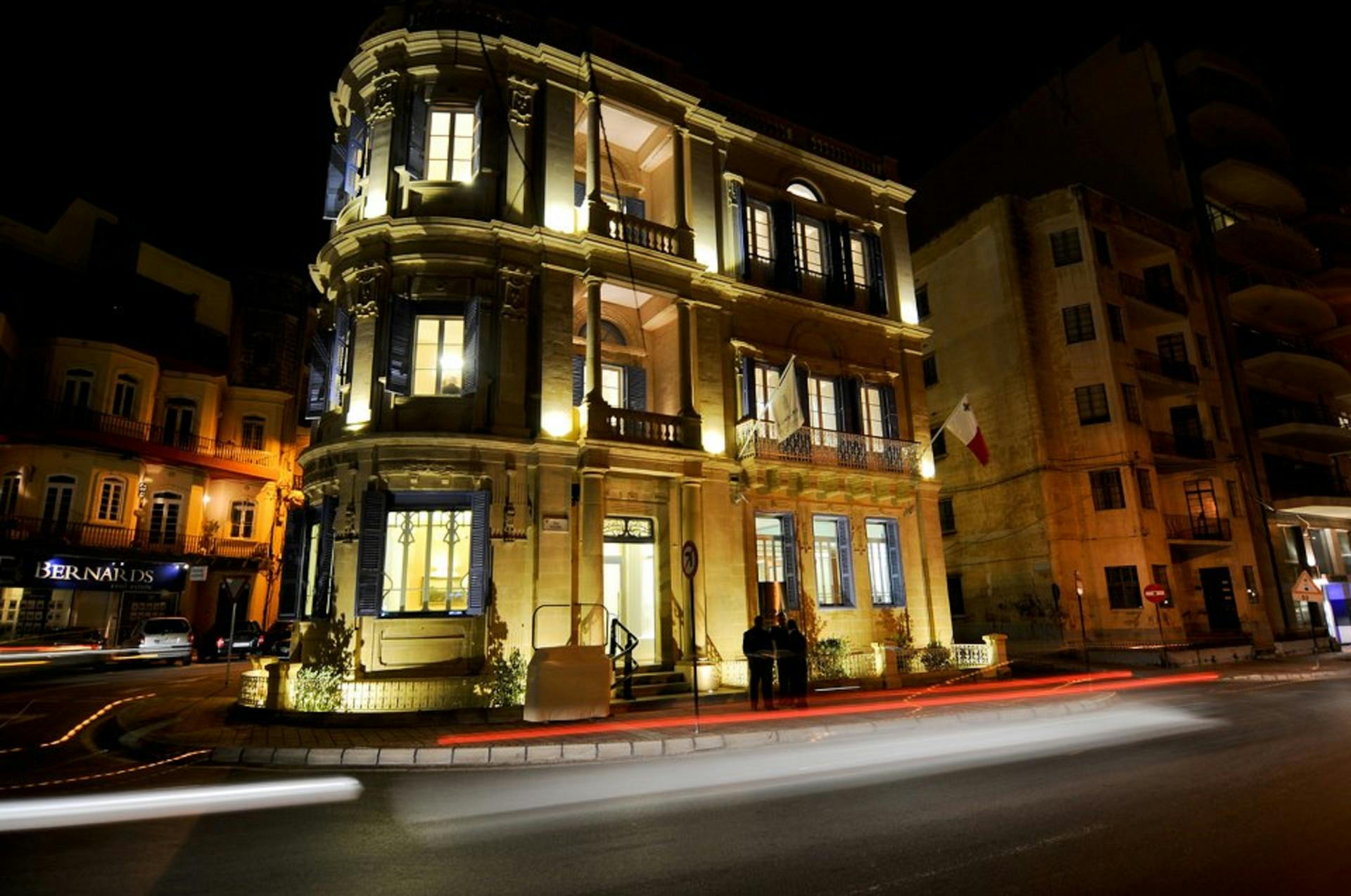
Hungary has a well-established banking system with a variety of options for individuals and businesses.
The country is home to several major banks, including OTP Bank, MNB (Magyar Nemzeti Bank), and K&H Bank.
These banks offer a range of services, from personal accounts to corporate banking and investment opportunities.
OTP Bank, for example, is one of the largest banks in Hungary, with a strong presence across the country.
List of Banks in Hungary
Raiffeisen Bank Zrt has over 60 outlets and more than 120 ATMs across Hungary, offering a range of account packages for individuals and corporate clients.
Account maintenance fees at Raiffeisen Bank vary by package, ranging from €0 to €6 per month. Clients can choose from various forint account packages, such as Feewinner, Activity 3.0, Everyday 2.0, Base 2.0, and Basic.
Corporate clients can choose from various Entrepreneur Active account packages, offering appealing incentives such as special offers for the first year, complimentary debit cards, low monthly fees, and the ability to hold accounts in foreign currencies.
OTP
OTP Bank is the largest bank in Hungary, boasting over 70 years of history and a 25% market share in the country. With nearly 1,500 branches and over 17.5 million customers worldwide, it's no wonder they're a household name.
Their corporate banking arm provides services such as account and cash management, investments, business cards, and financing. OTP's corporate clients can choose from various Entrepreneur Active account packages, offering appealing incentives like special offers for the first year, complimentary debit cards, low monthly fees, and the ability to hold accounts in foreign currencies.
The average monthly maintenance fee for non-resident companies is €16. International transfers incur a commission of 0.12%, with a minimum charge of around €11.
OTP Bank offers a range of forint account packages, including Basic, Active, Classic, Minimum, Premium+, Smart, and Junior. These packages differ in terms of options, rates, and service fees. Clients have the option to open a no-deposit account for free, which includes a linked bank card.
Broaden your view: What Has a Bank with No Money?
Here are the fees associated with OTP Bank's foreign currency accounts:
OTP Bank's foreign currency accounts can be opened in 12 currencies, including EUR, USD, GBP, JPY, SEK, and TRY. Account holders with multiple currency accounts are required to pay a maintenance fee for only one account, starting at €0.22 per month.
Foreign clients can open accounts, issue payment cards, and receive services in English.
Kereskedelmi és Zrt
Kereskedelmi és Hitelbank (K&H) Zrt is a significant player in Hungary's banking scene. It's the third-largest bank in the country, serving customers for over 35 years.
K&H Bank offers a wide range of financial services, including account opening, bank cards, loans, insurance, and brokerage services. With over 200 branches and 500 ATMs across the country, it's easy to access their services.
Their network of branches and ATMs ensures accessible banking solutions. You can find a branch near you and take care of your banking needs.
A different take: Online Banking & Mobile Banking
K&H Bank offers six account packages tailored to individual customers. These packages include Minimum Plus, Extended Plus, Comfort Plus, Youth, Retail, and Retail Foreign Currency.
The Retail Foreign Currency account accommodates accounts in four different currencies: EUR, USD, CHF, and GBP. Account management fees begin at €0, varying by the chosen package.
Two internationally accepted debit card types are offered by K&H Bank: K&H Mastercard Contactless and K&H Mastercard Gold. Both cards are issued free of charge and can be digitised for online use.
Corporate clients at K&H Bank have the option to open accounts in both forints and various foreign currencies. The process of opening an account is free of charge, with maintenance fees varying based on the account's currency.
Here's a breakdown of the maintenance fees for corporate accounts:
- For forint accounts: HUF 9,863, or approximately €25 per month.
- For foreign currency accounts: €29 per month.
K&H Bank allows the issuance of an unlimited number of corporate bank cards for each account, with each card including travel insurance.
Rankings and Market Share

OTP Bank held the top spot in terms of assets at the end of 2015 with a market share of 7,966.48 billion HUF.
UniCredit Bank ranked second with a balance sheet total of 2,971.12 billion HUF.
K&H Bank followed closely behind in third place with a balance sheet total of 2,607.22 billion HUF.
Raiffeisen Bank and MKB Bank tied for fourth place with balance sheet totals of 1,991.40 billion HUF and 1,974.41 billion HUF respectively.
Erste Bank ranked sixth with a balance sheet total of 1,883.08 billion HUF.
CIB Bank, Magyar Fejlesztési Bank (MFB), Budapest Bank, and FHB Bank rounded out the top ten spots.
Here's a breakdown of the top 10 banks in Hungary by market share at the end of 2015:
Major Banks in Hungary
Hungary has a well-developed banking sector with a decent number of banks to choose from. Many of these banks are owned by foreign financial groups in neighboring European countries.
OTP Bank is the largest bank in Hungary, with 378 branches as of 2020. It's owned by a mix of Hungarian and foreign investors.
K&H Bank is the third-largest bank in Hungary and has been serving customers for over 35 years. It offers a wide range of financial services, including account opening, bank cards, loans, insurance, and brokerage services.
Here's a list of the top 5 banks in Hungary, ranked by the number of branches:
Some Hungarian banks offer online account opening, while others require a visit to a branch. Always be prepared to provide proof of ID and address.
The requirements to open a bank account in Hungary vary between banks, but you'll usually need to provide proof of ID and address. Some banks may also require additional documentation.
Services and Benefits
Hungarian banks offer a range of services and benefits that make it easy for foreigners to manage their finances. With a Hungarian bank account, you can pay for goods and services from vendors in Hungary, other EU countries, the US, the UK, and more.
Check this out: Banks and Banking Services
You can also transfer money domestically and internationally, receive a salary from an employer in Hungary, get benefits, scholarships, and other social payments, and pay utility bills. This makes it a convenient option for those who live or work in Hungary.
Some banks in Hungary offer multi-currency accounts, allowing you to hold accounts in the local forint, as well as in the euro, the American dollar, and other currencies. This can be especially useful for those who receive income or have expenses in multiple currencies.
Here are some of the benefits of opening a Hungarian bank account:
- Pay for goods and services in multiple countries
- Transfer money domestically and internationally
- Receive a salary from an employer in Hungary
- Get benefits, scholarships, and other social payments
- PAY utility bills
Services for Foreigners
Hungarian banks are welcoming to foreigners, offering a range of services including account opening, card issuance, and more.
The most popular banks among foreigners are OTP Bank, K&H, Erste Bank, and Raiffeisen Bank.
To open a bank account, foreigners must personally submit documents to the bank's branch, with different requirements for residents and non-residents.

Residents need a passport, residence permit, or work visa, while non-residents need to prove a direct connection with Hungary, such as a lease agreement and registration certificate.
Foreigners with residence permits can use banking services without restrictions, including opening accounts and getting payment cards faster.
Here are the most popular Hungarian banks among foreigners, along with their English language support:
With a Hungarian bank card, foreigners can pay for purchases in Hungary and other EU countries, receive wages, benefits, and payments, and pay for utilities.
Benefits for Foreigners
Opening a bank account in Hungary can be a game-changer for foreigners living or visiting the country regularly. With a Hungarian bank account, you can pay for goods and services from vendors in Hungary, other EU countries, the US, the UK, and more.
You can transfer money domestically and internationally, making it easy to manage your finances. Receiving a salary from an employer in Hungary is also a breeze with a Hungarian bank account.

One of the most significant advantages of a Hungarian bank account is the simplicity of issuance. Compared to other European banks, Hungarian banks have fewer requirements for non-resident customers, making it easier to get started.
To give you a better idea, here are some of the benefits of a Hungarian bank account for foreigners:
- Pay for goods and services from vendors in Hungary, other EU countries, the US, the UK, and more
- Transfer money domestically and internationally
- Receive a salary from an employer in Hungary
- Get benefits, scholarships, and other social payments
- Pay utility bills
Banks in Hungary offer a wide range of services in various currencies, including the local forint, euro, and American dollar. This makes it easy to manage your finances in multiple currencies.
The customer service in Hungarian banks is also a major plus for foreigners. The apps and websites of major banks in Hungary are available in English, making it easy to navigate and understand banking services.
Financial Institutions and Overview
Hungary has a range of specialized credit institutions that cater to specific financial needs. Some of these institutions include FHB Jelzálogbank, Fundamenta-Lakáskassza, and OTP Jelzálogbank.
These specialized institutions offer a variety of services, such as mortgage lending and consumer financing. They often have a strong presence in the local market and are well-established in the Hungarian financial landscape.
Here are some examples of specialized credit institutions in Hungary:
- FHB Jelzálogbank
- Fundamenta-Lakáskassza
- Központi Elszámolóház és Értéktár (Budapest)
- Magyar Export-Import Bank
- Magyar Fejlesztési Bank
- OTP Jelzálogbank
- OTP Lakástakarékpénztár
- UniCredit Jelzálogbank
Specialized Institutions
In Hungary, there are several specialized credit institutions that cater to specific financial needs. One such example is FHB Jelzálogbank.
These institutions often have a narrower focus than traditional banks, allowing them to provide more tailored services to their clients.
FHB Jelzálogbank, for instance, offers specialized lending services for property purchases.
Another notable institution is OTP Jelzálogbank, which provides similar services to FHB Jelzálogbank.
UniCredit Jelzálogbank is also worth mentioning, as it offers mortgage lending services to its clients.
Here are some of the specialized credit institutions mentioned in the article:
- FHB Jelzálogbank
- Fundamenta-Lakáskassza
- Központi Elszámolóház és Értéktár (Budapest)
- Magyar Export-Import Bank
- Magyar Fejlesztési Bank
- OTP Jelzálogbank
- OTP Lakástakarékpénztár
- UniCredit Jelzálogbank
International Financial Institutions
In Hungary, you'll find several international banks operating alongside local institutions.
Citi, or Citibank, is the only American bank in Hungary, and it's a branch of the American bank Citigroup.
Erste Bank, part of the Austrian Erste Group, offers a full range of financial services to individuals, businesses, and other organisations.
Raiffeisen Bank operates as a universal bank in Hungary, providing services across all customer segments.
Bank of China has a branch in Hungary, focusing on corporate and investment banking services.
BNP Paribas originates from France and focuses on corporate and institutional banking.
ING Bank originates from the Netherlands and focuses on corporate and investment banking.
Here's a list of some of the international banks in Hungary:
- Citi (Citibank)
- Erste Bank
- Raiffeisen Bank
- Bank of China
- BNP Paribas
- ING Bank
Sector Overview
Hungary's financial system is considered one of the most developed and stable in Eastern Europe, established over 30 years ago with a two-tiered banking system.
The National Bank of Hungary, or Magyar Nemzeti Bank (MNB), serves as the country's central bank, overseeing the financial system and implementing monetary policy.
The MNB primarily interacts with commercial banks and other financial institutions, rather than directly engaging with individual customers or non-financial legal entities.
Hungary is home to around 30 financial institutions, including commercial banks, foreign bank branches, mortgage banks, and savings banks, with most operating as either a Public Limited Company (Nyrt) or Private Limited Company (Zrt).
For another approach, see: List of Financial Institutions in Ghana
Commercial banks in Hungary offer a range of services, including maintaining accounts and deposits, issuing cards, providing loans, and accepting payments.
Banks in Hungary typically charge commission fees for all basic operations, with rates and terms varying by provider and pricing plan.
The average fee for opening a private bank account in Hungary is approximately €12, while monthly maintenance fees range from €5 to €8.
The fee for issuing a payment card is around €8, although some banks may offer cards for free.
You might like: Acquiring Bank vs Issuing Bank
Largest Banks in Hungary
The largest banks in Hungary are dominated by OTP Bank Nyrt, which holds a significant market share of 24.78%. This is followed closely by MBH Bank Nyilvánosan Működő Részvénytársaság with 11.17% market share.
Here are the top 10 largest banks in Hungary based on market share:
These banks offer a wide range of financial services, including savings, investments, loans, and credits.
Top 10 Largest Banks
The largest banks in Hungary are a force to be reckoned with, and OTP Bank is the clear leader, holding a staggering 24.78% market share and €47,300 million in assets.

OTP Bank is the largest bank in Hungary, occupying about 25% of the Hungarian market, and operates in 12 other Central and Eastern European and Asian countries.
MBH Bank Nyilvánosan Működő Részvénytársaság comes in second with 11.17% market share and €21,300 million in assets, followed closely by K&H Bank Zrt with 8.41% market share and €16,100 million in assets.
Here are the top 10 largest banks in Hungary based on market share:
These banks not only dominate the market but also offer a range of online services, including mobile applications, to their clients.
Granit
Gránit Bank is a digital universal bank that serves both retail customers and corporate clients. It operates through direct channels and a network of partners.
Launched in 1985, Gránit Bank offers a range of products and services. Its digital bank account is a solid choice for everyday needs, coming with a debit card.
The Gránit Digital bank account is a fairly basic account managed through online and mobile banking. It's a great option for those who prefer digital banking.
For companies, Gránit Bank offers accounts, cards, financing, and savings products. This makes it a great choice for entrepreneurs and new companies looking for a comprehensive banking solution.
Unfortunately, the bank doesn't have any current accounts available for personal customers.
A different take: First Bank Digital Banking
Frequently Asked Questions
Which is the best bank in Hungary?
There is no single "best" bank in Hungary, as each bank has its own strengths and offerings. To find the best bank for your needs, consider factors like branch network, services, and fees when choosing from top Hungarian banks like OTP, MBH, K&H, UniCredit, Erste, Raiffeisen, CIB, and MFB.
Can a US citizen open a bank account in Hungary?
Yes, US citizens can open a bank account in Hungary with a valid passport and proof of Hungarian residence, such as an address card or residence card. Contact our Hungarian lawyers for assistance with the process.
Featured Images: pexels.com


